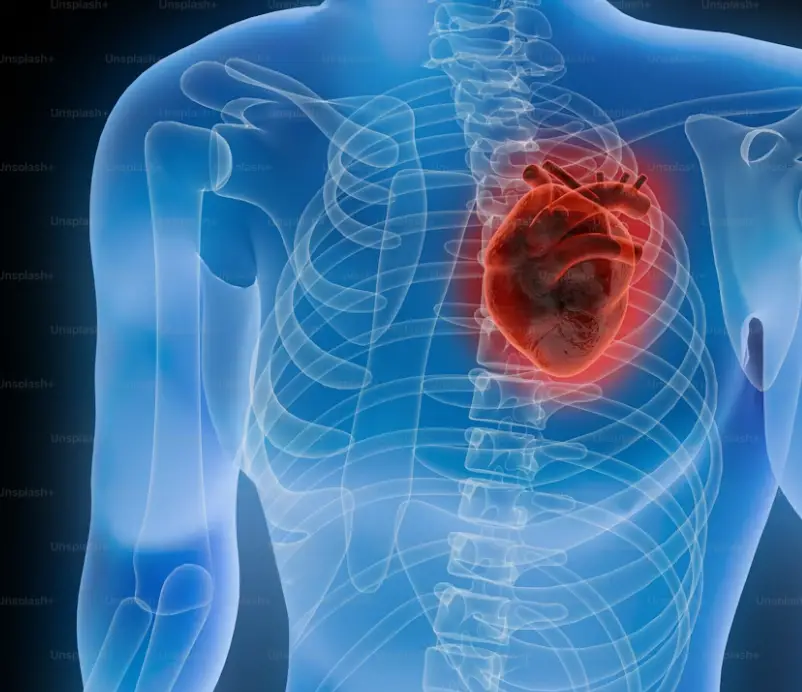The World Health Organization (WHO), the World Heart Federation, and the American Heart Association estimate that heart failure (HF) is a global pandemic affecting at least 26 million people worldwide, and its prevalence is rapidly increasing, according to a study published in Science Direct.
Heart failure doesn’t mean the heart is no longer working but that it isn’t pumping as it should, and the body relies on it to pump oxygenated, nutrient-rich blood to its cells. When the heart loses strength and can’t deliver enough blood, it leads to fatigue, shortness of breath, and sometimes a chronic cough. Over time, even routine activities such as walking, climbing stairs, and carrying bags become increasingly difficult.

While heart failure, HF, is a lifelong condition, you may have HF remission with treatment and healthy lifestyle changes.
In fact, doctors warn of four habits that can be linked to heart failure, advising to break them for the sake of a healthy heart and overall well-being.
1. Excessive Salt Intake
A study published by AHA/ASA Journal, “Dietary sodium restriction is arguably the most frequent self-care behavior recommended to patients with heart failure (HF), and is endorsed by all HF guidelines.”
Excessive sodium intake is associated with fluid retention, which can lead to increased blood pressure. Over time, high blood pressure weakens the heart and increases the strain on it, eventually leading to heart failure.
“In 2005, the American College of Cardiology and the American Heart Association HF guidelines recommended 3000 to 4000 mg daily sodium intake, and, for patients with volume overload, restriction to 2000 mg/d. This recommendation was subsequently updated to moderate sodium restriction. The Heart Failure Society of America recommends 2000 to 3000 mg daily sodium intake and <2000 mg for patients with moderate to severe HF symptoms.”
How to avoid this habit: Limit processed and salty foods like canned soups and packaged snacks. Instead, opt for home cooked meals with fresh ingredients, adding flavor with herbs and spices instead of salt. Also, check food labels for hidden sodium.
2. Sedentary Lifestyle
Sitting too much has become part of modern life, but it puts the heart at risk.
Most of us spend great part of the day sitting at desks, on the couch, or in cars, probably not being aware that this for of lifestyle increases the risk of heart disease and heart failure. On the other hand, regular exercise boosts circulation, keeps weight in check, and helps lower blood pressure.
How to avoid this habit: Try to get at least 150 minutes of moderate exercise or 75 minutes of intensive activity each week. Break up long sitting periods by standing, stretching, and walking. Low-impact options like walking, cycling, swimming, or dancing are great for your heart and easy on the joints.
3. Smoking and Excessive Alcohol Consumption
Alcohol and smoking may worsen the condition of heart failure, so it is crucial that people with heart failure reduce their alcohol intake and quit smoking.
Smoking affects blood vessels, increases blood pressure, and reduces the amount of oxygen delivered to the heart. In the same manner, excessive alcohol consumption weakens the heart muscle and increases the risk of heart failure. The sad reality is that many people fail to realize the long-term damage these habits do to the heart and the overall health.
How to avoid this habit: If you are a smoker, try to quit. And of course, if you find this difficult, which is likely you do, then seek support. The same goes for the alcohol. Reduce the intake to moderate levels (one drink per day for women, two for men), and if you have trouble cutting back on alcohol, consider seeking professional help or support groups.
4. Chronic Stress and Poor Sleep

Chronic stress and poor sleep can take a serious toll on your heart health. Ongoing stress raises cortisol levels, which can increase blood pressure and strain the heart. At the same time, not getting enough sleep prevents the body from repairing cells and disrupts metabolism, raising the risk of obesity, diabetes, high blood pressure, and ultimately heart failure.
How to avoid this habit: Practice stress-management habits like deep breathing, meditation, or mindfulness on a daily basis. Try to get 7 to 9 hours of sleep during the night and keep your bedtime routine calm, screen-free, and comfortable.
Please SHARE this article with your family and friends on Facebook.
Bored Daddy
Love and Peace



